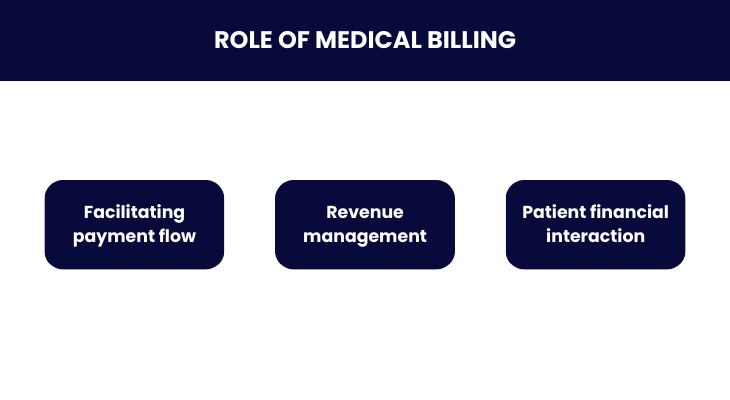In healthcare, two fundamental activities ensure everything is in order: medical coding and billing.
Although they sound similar, these functions differ in how they handle paying healthcare providers and correctly billing patients.
It is crucial for anyone who is entering the healthcare industry or managing finances to comprehend the difference between medical billing and medical coding.
An Introduction to Medical Coding
Medical coding can be described as the backbone of the financial and documentation processes in the health sector.
It guarantees that every disease, therapy, and medical service is recorded in a format easily understandable to other healthcare workers, insurance companies, and government organizations.
With medical coding, healthcare administration proceeds with more understanding of billing, insurance claims, and patient care.
In its simplest form, medical coding translates detailed medical data into easily recognizable code.
These codes include diseases, treatment, and medical devices, allowing information sharing through health care providers, insurance companies, and other authorities.
In other words, medical coding links medical treatment and payment for services.
Key Responsibilities of a Medical Coder
Medical coders play a crucial role in ensuring the healthcare system functions smoothly. Here’s a closer look at their responsibilities:

- Reviewing medical records: Coders meticulously examine clinical documentation, including doctor notes, lab results, and procedure reports, to determine which treatments or services must be coded.
- Assigning accurate codes: They assign the appropriate standardized codes to each diagnosis, procedure, or medical service. This step is vital for healthcare providers to be reimbursed by insurance companies and maintain accurate patient records.
- Ensuring compliance: Coders must stay updated on the latest coding standards and regulations to ensure all data complies with healthcare laws and insurance requirements. Failure to do so can result in billing errors, denied claims, or legal consequences.
- Working with healthcare providers: Medical coders often collaborate with doctors, nurses, and administrative staff to clarify any ambiguities in the medical documentation, ensuring accuracy before the billing process begins.
Types of Medical Codes (ICD, CPT, HCPCS)
Medical coders work with three main types of codes, each serving a different purpose within the healthcare system:
- ICD (International Classification of Diseases): ICD codes document diseases, health conditions, and injuries. They provide a standardized way for healthcare providers to document diagnoses, making it easier for insurers and government agencies to track health trends and allocate resources. These codes are also crucial for epidemiological studies and public health management.
- CPT (Current Procedural Terminology): CPT codes describe medical procedures and services, such as surgeries, diagnostic tests, and consultations. These codes are essential for billing purposes, as they inform insurers about what treatments or services were provided. Every procedure, from routine check-ups to complex surgeries, has a corresponding CPT code to compensate the provider appropriately.
- HCPCS (Healthcare Common Procedure Coding System): While CPT codes cover most medical procedures, the HCPCS system includes additional codes for services and items not covered by CPT. This includes everything from medical equipment (like wheelchairs or crutches) to ambulance services. HCPCS codes also cover medications and other supplies used during a patient’s treatment, ensuring comprehensive documentation of all healthcare services.
What is Medical Billing?
Medical billing is the intersection of medical and finance. It is the process of enabling healthcare service providers to be paid for their services.
The healthcare revenue cycle would be complete with medical billing, and providers and patients would need clarification. Now, let’s find out what medical billing is and why it is essential.
Medical billing is submitting and following up on healthcare claims with insurance companies to receive payment for services provided by healthcare professionals.
It involves preparing and sending claims based on the medical codes provided by coders, ensuring that healthcare providers are adequately reimbursed for their services.
Key Responsibilities of a Medical Biller
Medical billers are responsible for the financial side of healthcare, ensuring that providers get paid for their services and that patients and insurers are billed correctly.
Here are the primary duties they manage:

- Creating and submitting claims: Billers take the coded medical data and submit claims to insurance companies or government agencies like Medicare or Medicaid. They ensure all information is accurate and complete to avoid claim rejections.
- Following up on claims: They monitor the claims process, track payments, and handle any insurance company denials or rejections. This often requires resubmitting claims with corrected information.
- Patient billing: Medical billers are also responsible for creating and sending bills to patients for any services not covered by insurance. They may work with patients to set up payment plans or resolve disputes regarding billing errors.
- Handling payments: Billers track payments made by insurance companies and patients, ensuring that the healthcare provider receives the correct reimbursement. They also reconcile payments and report any discrepancies.
Role of Medical Billing in the Healthcare Revenue Cycle
Medical billing is a vital part of the healthcare revenue cycle, the process by which healthcare providers earn income from their services.
Let us look at how medical billing fits into the bigger picture:

- Facilitating payment flow: Medical billing ensures that healthcare providers are paid for their services. Providers might need accurate billing to avoid delays or denials in payment, affecting their ability to operate smoothly.
- Revenue management: By managing claims and payments, medical billers help maintain a steady flow of revenue. They ensure that insurers and patients are billed correctly, minimizing the chances of financial loss.
- Patient financial interaction: Billers serve as a bridge between patients, insurers, and providers. They help clarify billing questions and assist patients with payment options, ultimately ensuring that the provider gets paid while maintaining positive patient relationships.
Differences Between Medical Coding and Billing
Medical coding and billing are closely linked in the healthcare revenue cycle but serve distinct functions.
Medical coding focuses on translating medical procedures and diagnoses into standardized codes, while medical billing revolves around submitting claims and managing payments.
Both roles are crucial for ensuring that healthcare providers are properly reimbursed, but they require different skill sets and responsibilities.
Let’s take a deeper look at the differences between medical billing and coding.
Skills Required for Medical Billing vs Medical Coding
While medical coders and billers contribute to the healthcare system, they each require specific skills tailored to their respective roles.
- Medical Coding: Medical coders need strong attention to detail and in-depth knowledge of medical terminology, anatomy, and healthcare regulations. Coders must understand complex medical documents, translate them into the correct codes (ICD, CPT, HCPCS), and stay updated on ever-changing coding standards. Coders must also have analytical skills, as they often interpret doctors’ notes and ensure accurate coding for insurance claims.
- Medical Billing: Medical billers, on the other hand, need excellent communication and problem-solving skills. They often interact with insurance companies, patients, and healthcare providers to resolve billing issues. Billers must have a solid understanding of insurance processes, claims management, and payment systems. They also need to be well-organized and able to handle multiple claims at once to ensure timely payments.
How Medical Coding and Billing Work Together
While medical coding and billing are two different procedures, they complement each other for an efficient healthcare revenue cycle.
Medical billers utilize the codes given to them by medical coders to develop claims submitted to insurance companies.
The biller makes sure the claims are submitted and follows the payments made by the insurers and patients.
If there is a problem with a claim, for example, the code used or information missing, the coder and biller are likely to have to sort out the problem.
This collaboration is essential because coding and billing are correct, and healthcare providers are paid appropriately.
A simple error in coding can result in denied claims, slow reimbursement, and sometimes legal consequences.
Consequently, both roles have to work in harmony to ensure that the financial stability of the healthcare organizations is achieved.
Common Challenges in Medical Coding vs Billing
Though medical coding and medical billing play vital roles, both come with their unique challenges:
- Medical Coding Challenges: Coders face the challenge of staying updated with constantly evolving medical codes, particularly the ICD and CPT systems. Any changes to coding standards or regulations can impact the accuracy of claims. Moreover, coders must deal with incomplete or unclear documentation from healthcare providers, which can lead to coding errors and claim denials.
- Medical Billing Challenges: Medical billers often face the challenge of navigating the complex world of insurance claims. This includes dealing with claim rejections, denials, or payment delays. They must also manage multiple claims at once, ensuring accuracy and timely follow-up. Additionally, billers often serve as the first point of contact for patients who have questions or concerns about their bills, requiring a mix of empathy and problem-solving skills to address any billing disputes or errors.
Role of Medical Coding and Billing in Preventing Claim Denials
The most significant issue in the healthcare revenue cycle is claim denials. Medical coding and billing are critical activities in the healthcare delivery system because they ensure that claims are processed correctly and that healthcare providers are paid on time.
Therefore, it is imperative to ensure that the medical billing and coding are correct to avoid denied claims, which may affect cash flow and create problems for both providers and patients.
Ensuring Accurate Coding and Billing for Claim Approval
The first way of avoiding claim denials is coding. Medical coders have to be very careful when choosing the correct codes for patients’ records, diagnoses, and procedures, for instance, ICD for diagnosis and CPT for procedures.
The most straightforward error, like using the wrong code or not linking the diagnosis with the treatment given, can lead to an insurance claim being turned down or delayed. Coding errors are among the most common reasons for claim rejection.
On the billing side, medical billers check that the claim is comprehensive and all the details are forwarded to the insurance company.
This entails confirming the patient’s details, verifying insurance, and ensuring the codes correspond to the services provided.
Another responsibility of billers is to follow up on the denied or rejected claims, determine why they were dismissed, and work with the coders to correct the mistake before resubmitting the claim.
When coding and billing are well done, the probabilities of claims being denied are reduced to the bare minimum. This simplifies the payment process and ensures that healthcare providers are paid promptly.
The Impact on Healthcare Communication
Medical coding and billing influence payments and are essential to healthcare messaging. Coders and billers act as a link between providers, payers, and consumers of health care services.
They also help standardize the codes used in diagnosing a sickness, the treatment, and the amount of money paid for the illness.
When claims are denied, communication becomes even more critical. Medical billers may have to communicate with insurance companies to resolve problems.
In contrast, coders may have to explain some details to providers to ensure the proper data is provided.
Disputes can arise due to a lack of communication, which may result in delayed payments and disagreements between the patient and the healthcare provider.
Importance of Accuracy in Medical Coding vs Billing
Health care is an industry where precision is not just valued but required. While medical coding and billing are related, both professions involve a great deal of accuracy to ensure that healthcare facilities get paid the right amount and on time.
Mistakes in either process can result in huge losses, delayed payments, and increased bureaucracy.
Now, let us discuss why it is essential to be accurate in medical coding and billing and how a mistake can affect the whole process.
Impact of Errors in Coding and Billing
Medical coding and billing errors can have wide-reaching consequences for healthcare providers, patients, and insurance companies.
Here’s a breakdown of the impact:
- Medical Coding Errors: Mistakes in medical coding can lead to incorrect or rejected claims. For example, using an outdated code or mismatching a diagnosis with a procedure can trigger an automatic denial by insurance companies. Coding errors can also result in underpayment, meaning healthcare providers may not receive the full reimbursement for their services. Additionally, inaccurate coding can raise compliance issues and even result in legal action if regulatory standards are unmet.
- Medical Billing Errors: On the billing side, errors can range from submitting incomplete claims to incorrectly calculating patient co-pays. These mistakes can cause insurance companies to deny claims, requiring billers to rework and resubmit them, which delays payment. For patients, billing errors might result in overcharges or confusion over their financial responsibilities, damaging trust in the healthcare provider.
Both types of errors waste valuable time and resources, often leading to frustrating payment delays and potentially harming the provider’s relationship with patients and insurers.
Preventing Claim Denials and Delays
The key to preventing claim denials and delays is accuracy at every stage of the coding and billing process.
Here are a few ways this can be achieved:
- Regular Training and Updates: Medical coders and billers must stay up-to-date with the latest coding standards and insurance policies. The healthcare landscape is constantly evolving, and even minor changes in coding guidelines can lead to denials if not properly understood. Regular training ensures that coders and billers can apply the most current rules and reduce the likelihood of errors.
- Thorough Documentation Review: Coders should thoroughly review patient records and clinical documentation before assigning codes. Clear, accurate documentation from healthcare providers can significantly reduce errors. Billers should also double-check claims before submission to ensure that all necessary information is included.
- Use of Advanced Software: Many healthcare organizations invest in specialized software that helps detect potential errors in coding and billing. These systems can catch discrepancies before claims are submitted, reducing the chances of rejections or delays.
- Collaboration Between Coders and Billers: Coders and billers often need to work closely together to resolve any issues that arise. This collaboration helps ensure that claims are complete, accurate, and submitted on time, minimizing the chances of claim rejections.
Summing Up
Understanding the distinctions between medical coding and billing is crucial for optimizing the healthcare revenue cycle.
Accurate coding and billing prevent claim denials and delays and enhance communication between healthcare providers, insurance companies, and patients.
As we have seen, both are crucial in managing the financial aspect of healthcare organizations. By focusing on getting the facts right and working together, healthcare providers can make their work easier, get paid for the services they offer, and get paid on time.
Are you ready to improve your practice’s financial outcomes? Partner with Promantra and take advantage of our complete array of Medical Billing and Revenue Cycle Management (RCM) solutions.
Whether it is charge entry and medical coding, insurance denial management, or patient eligibility verification, we offer technology-based services that can help you increase your revenue and reduce your workload.
We want to help you direct your attention to what matters most: patients. Contact Promantra now to unlock the potential of your revenue cycle.




